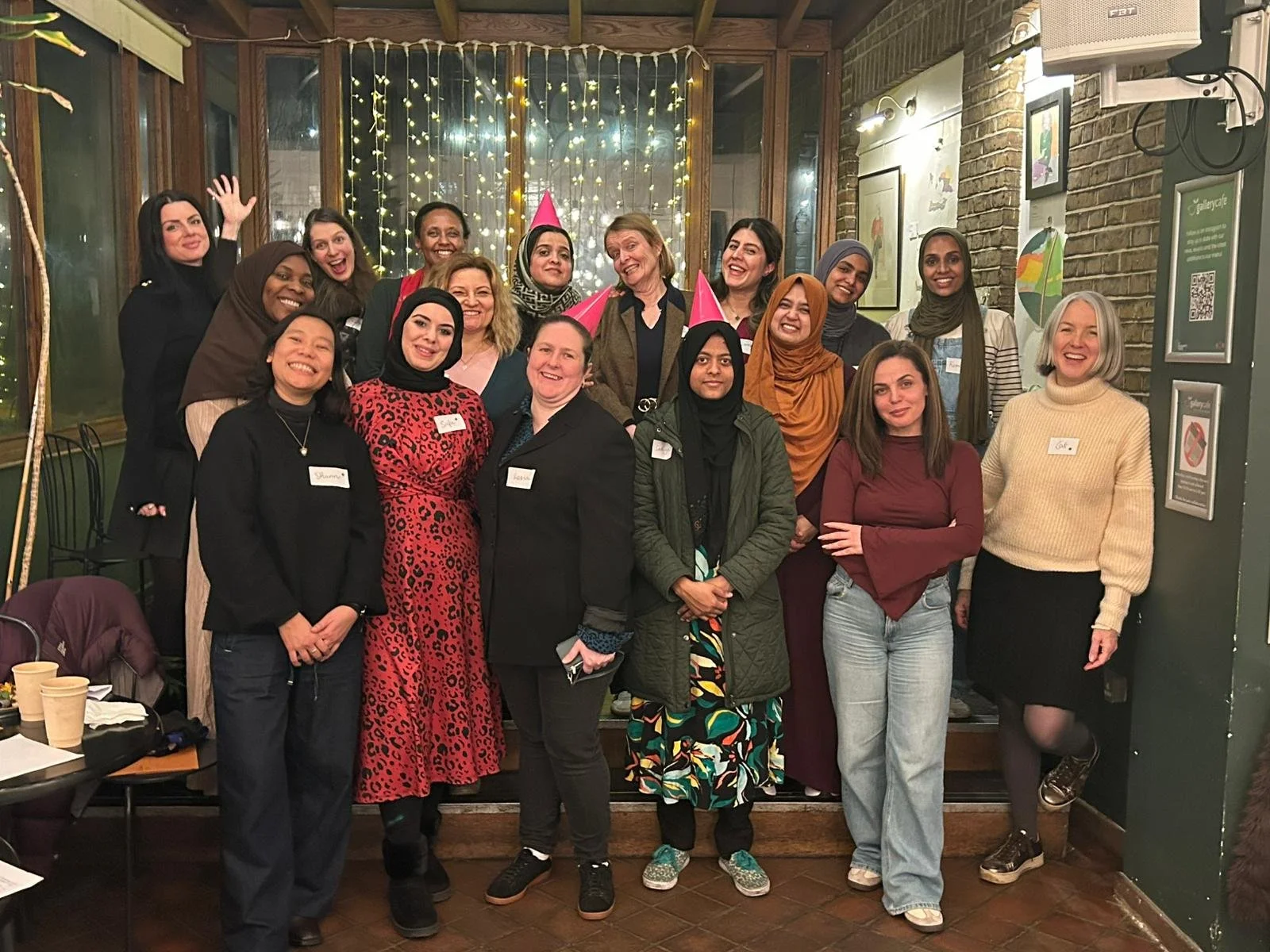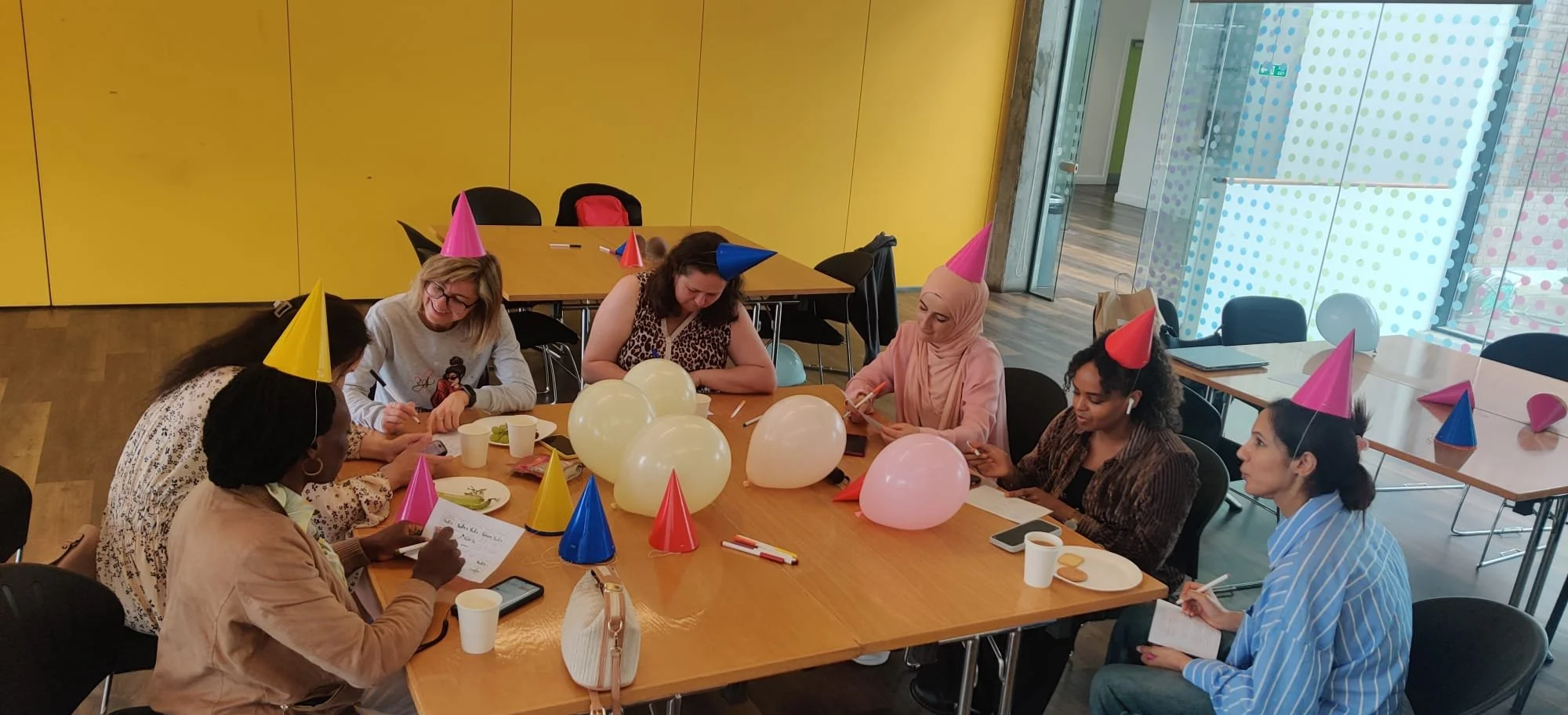Routes Mentor Mel: acknowledging other people's skills and power
Mel Ramasawmy is a Postdoctoral Researcher at Queen Mary University of London. She joined Routes for our 12th Mentoring Programme, which consists of training for mentors and practical learning in supporting a fellow refugee woman as a mentee. Mel was paired up with Saba, and supported her mentee on goals related to higher education. In the meantime, she worked on her own personal confidence and leadership skill set for being an inclusive leader. In this blog, Mel reflects on her time on the Programme and the key areas of growth.
Anticipating the journey
I started my journey with Routes feeling both excited to start a new mentoring relationship, and nervous about having an appropriate response to the challenges that my mentee may have faced. The information and training provided by Routes was invaluable in understanding the current context for refugees in the UK, and the responsibilities and boundaries of the mentoring. When I was matched with Saba, and learned that she wanted to return to higher education, I felt hopeful that I might be able to share some relevant experience, as a health researcher working at a London university.
In my own career, I have benefited from the insights and encouragement of mentors in the past. This has come in many forms such as: providing a safe space to share my worries; being a touchpoint for me to measure and acknowledge growth; advocating for me (or giving me a friendly push to advocate for myself!); and providing guidance on how to navigate career development in different professional cultures.
This is something I wanted to pay forward.
Meeting for the first time
I suggested the Wellcome Collection as the location for our first meeting. Exploring the exhibitions on science, medicine and art allowed us to talk in a relaxed way and find things we had in common. Afterwards we sat in a quiet area and talked about our reasons for joining the Routes programme and how Saba was hoping to benefit from it. We thought of some potential actions we could take over the next ten weeks which would move her closer to her goal.
In our time together we have continued to explore medical exhibitions in London as well as meet online for more focussed sessions, such as writing a CV and personal statement.
Holding space for goal-related work
A big theme across our time together has been dealing with delay. I feel like we both learned to appreciate the value of taking small steps towards progress, rather than moving rapidly towards our goals.
Saba has had to overcome a number of barriers before applying for the Master’s course that interests her. ‘Sitting in the waiting room’ is difficult and it can be hard to remain motivated. Although the experiences and challenges are very different, this resonated with me as academic careers are precarious and require living with uncertainty.
One of my worries at the start of the programme was about making suggestions and recommendations that come from a place of privilege and which might not be possible for others. I drew on some of the reflective tools and skills from the training days, to help me find an approach that was about providing a supportive space, rather than solving problems.
Acknowledging other people’s skills and power
As Saba and I reflected on our experiences together to write our blog (they wrote a brilliant blog together about their shared learning, which you can find here), I was touched to hear that she had found this helpful in acknowledging her skills and power. One of my aims in participating in the programme was to explore tools and leadership styles that felt authentic to me as a person. The trust and openness Saba showed me while working together, has helped build my confidence too.
As a researcher, I am interested in how differences in access and use of health technology may contribute to unfair and avoidable differences in health across the population. To understand what happens in the ‘real world’, the ability to work with people from a wide variety of backgrounds is crucial. Good research in health takes a ‘Patient and Public Involvement’ approach, which means that people with relevant experience contribute to what questions we ask, how we do the research, how we share our findings and what we do with them. I hope that utilising inclusive leadership practices, to acknowledge the expertise of people with lived experience, and involve them in decision-making, can help make these relationships more meaningful and improve the relevance and impact of our research.
I am proud of what Saba has achieved in this short time, and feel fortunate to have played a small part. I’m excited to see what she achieves over the next few years!
As mentioned, Saba and Mel also wrote a great blog together, in which they explore their thoughts on education, goal-setting and confidence building. You can read their reflections on their time together here.





